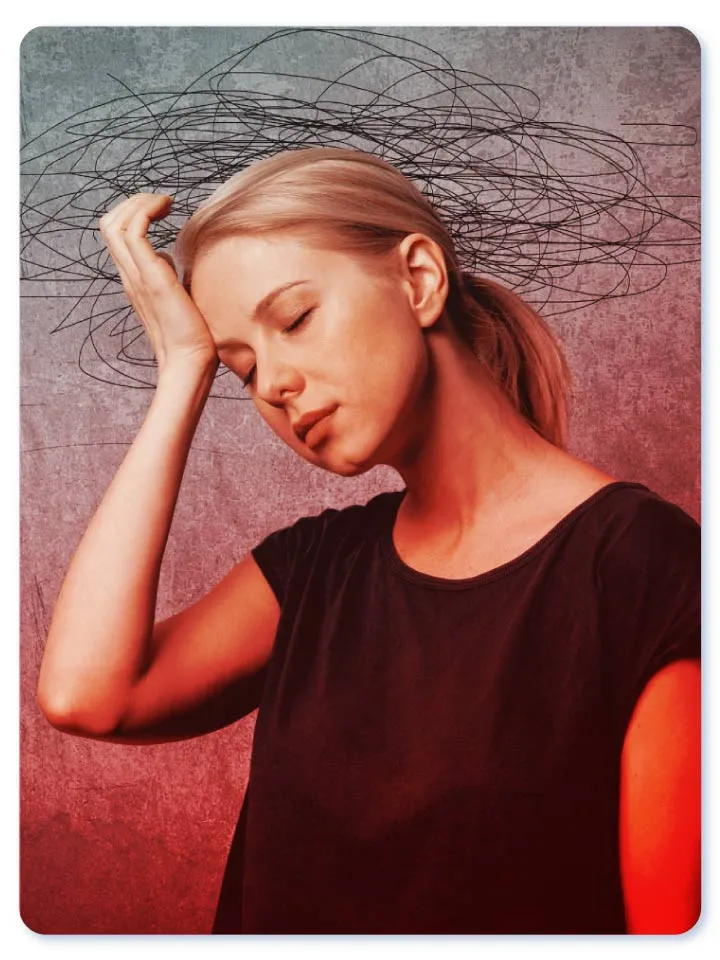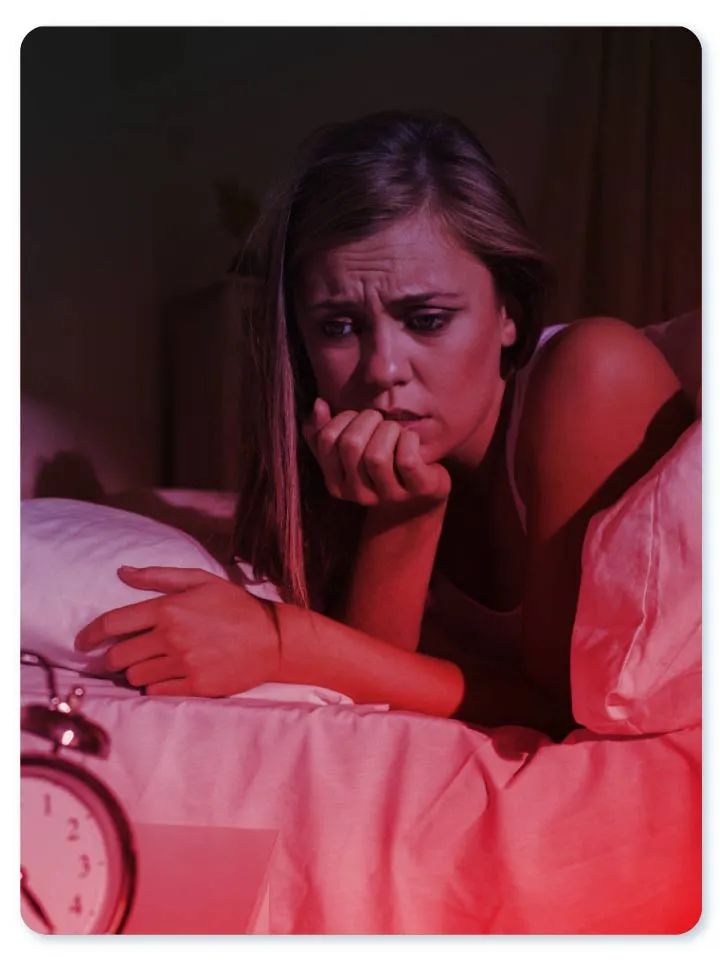Sleep Disorder
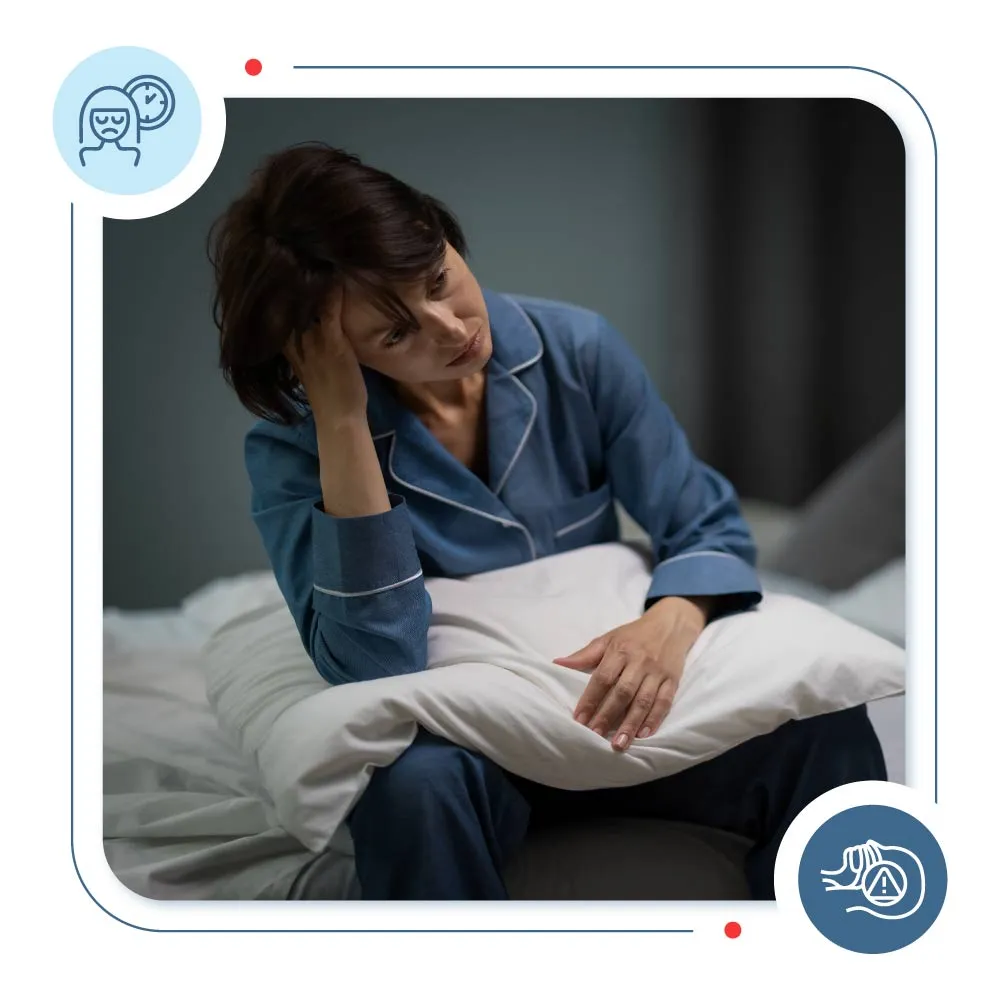
Sleep Disorders
Sleep disorders are conditions that affect your ability to fall asleep, stay asleep, or experience restful sleep. The spectrum of sleep disorders is wide with more than 80 known sleep disorders that affect how you sleep, when you fall asleep and how much time you spend sleeping (and awake) during the 24-hour period.
As per the estimates, around 50 million to 70 million people suffer from some type of sleep disorder and around half of them are undiagnosed.
Poor sleep can affect your physical as well as mental health, but it doesn’t have to stay that way. Mid Cities Psychiatry offers you the most advanced and rigorously validated interventions for sleep disorders in Euless, TX. Our dedicated team of psychiatrists and psychologists specialize in helping you achieve restful, uninterrupted sleep. If you’re fighting sleep issues, reach out for help and schedule an appointment today.

Sleep Disorders Symptoms
Sleep problems manifest in many ways and not everyone faces the same symptoms of trouble falling asleep or staying asleep. Common sleep disorder symptoms are:
- Difficulty falling asleep (insomnia)
- Unable to stay asleep
- Waking up too early and being unable to fall back asleep
- Excessive daytime sleepiness
- Loud snoring
- Gasping
- Frequent pauses in breathing during sleep
- Irritability or sudden extreme mood swings
- Difficulty concentrating or memory issues
- Extreme urge to move your legs in sleep
- Morning headache
- Sleep talking
- Anxiety before bedtime
If you are feeling any of these sleep disorder symptoms, immediate action is needed. Connecting with a professional psychiatrist can help you overcome these sleep disorder symptoms at the right time before they worsen. At Mid Cities Psychiatry, we offer individualized treatment strategies for sleep-related disorders.
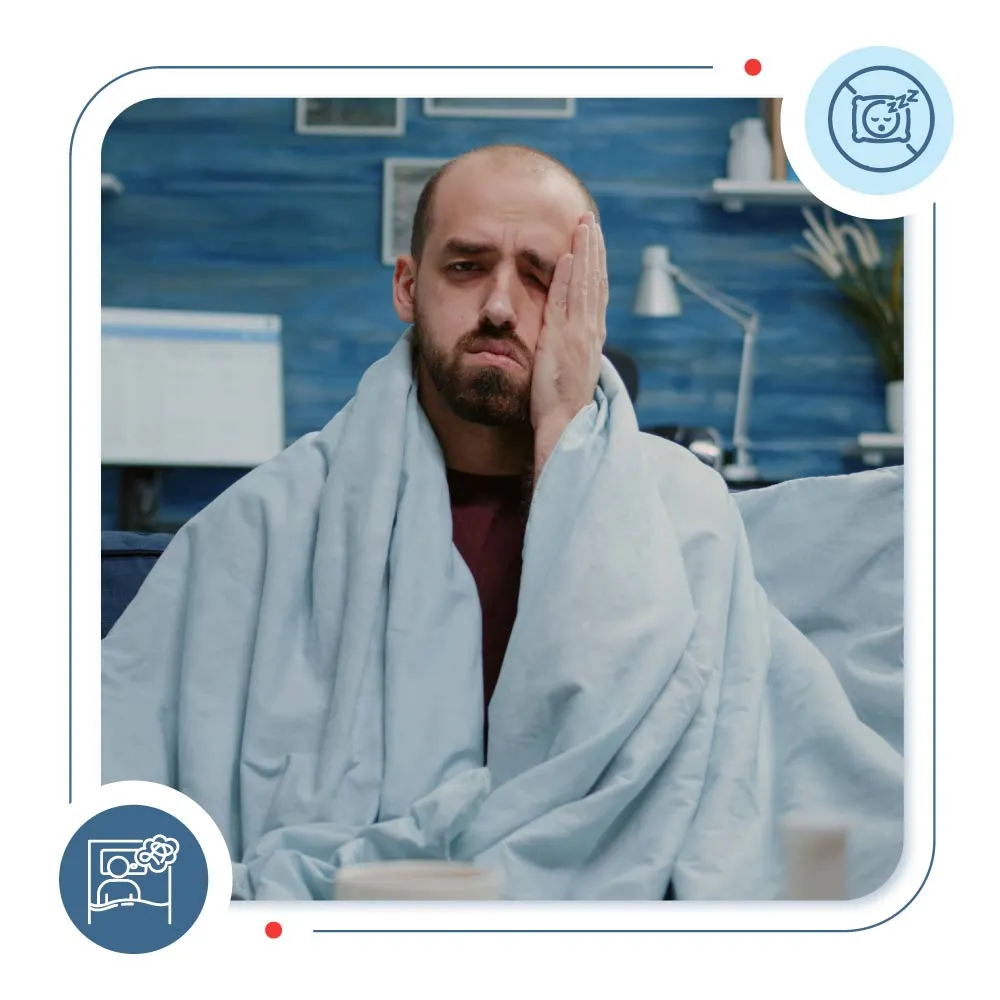

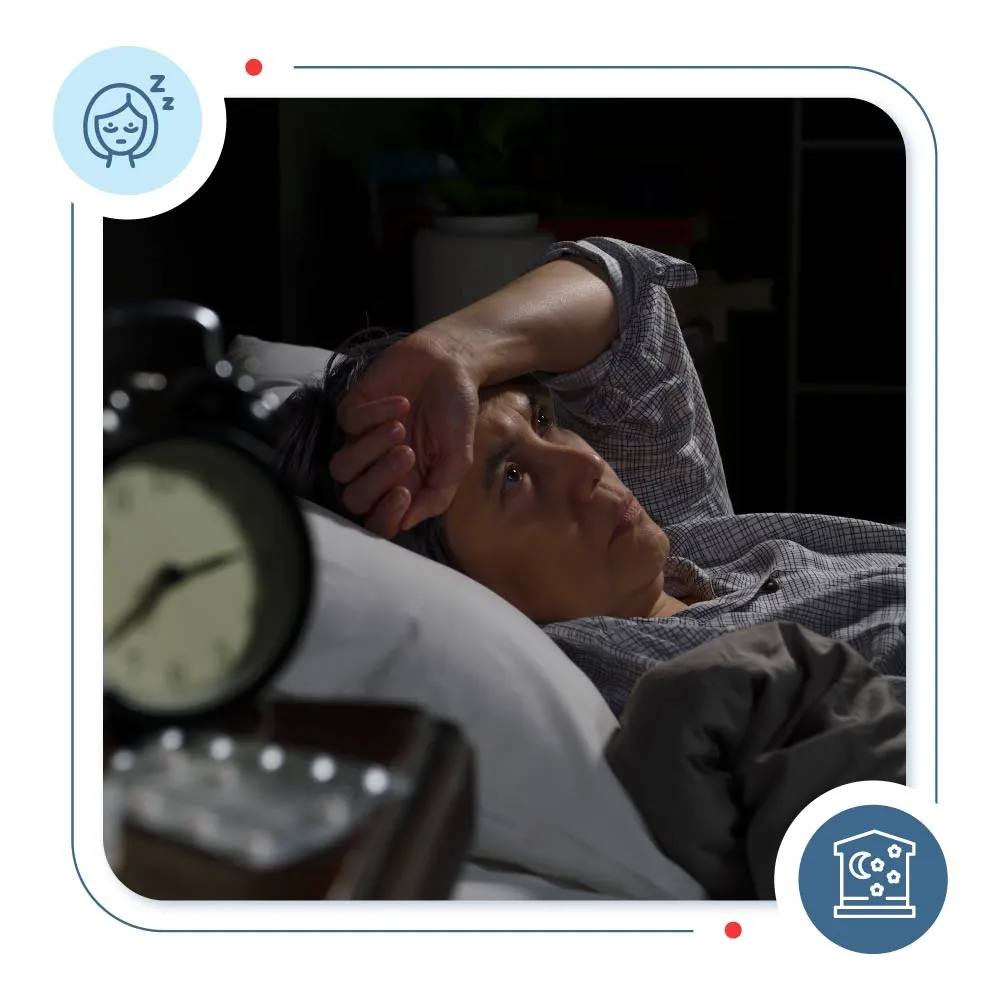
Causes of Sleep Disorder
The causes of sleep disorders are not defined, even some are unknown. Sleep disorders are mostly categorized as to why they occur and their impacts, behavioral issues, breathing problems and how you feel during sleep. Some people might suffer from organic sleep disorders that occur secondary to medical or neurological conditions. In general, these are the commonly identified causes of sleep disorders:
- Working during the night shift which disrupts the usual diurnal rhythm
- Having a history of asthma, heart disease, lung disease, pain or a nerve condition.
- Medication or drug side effects
- Multiple sclerosis and traumatic brain injury
- Genetic mutations
- Mental illnesses such as anxiety and depression
- Alcohol abuse or excessive caffeine intake
- Aging factor
- Low levels of certain minerals or chemicals in the brain.
- Biological family history of sleep disorders

Types of Sleep Disorders
There are more than 80 types of sleep-related disorders. The most common sleep disorders are:
Obstructive sleep Apnea
When a person experiences repeated episodes of upper airway collapse during sleep, leading to pauses in breathing and sleep disturbances. This interruption can occur at least 5 times throughout your sleep time or last longer than 10 seconds.
Central Sleep Apnea
When a person’s breathing concurrently starts and stops while asleep because of improper signals sent by the brain to the muscles regulating breathing.
Restless legs syndrome
Due to the uncomfortable feeling in the legs, an extreme urge is created to move the legs when lying or sitting down. This mostly happens during the evening or at night.
Chronic Insomnia
Difficulty falling and staying asleep or waking up too early and not being able to get back to sleep again. This sleep-wake disorder lasts for a few days and happens at least three nights a week for three months or longer.
Shift work sleep disorder
As a work schedule changes often, a person struggles to stay or fall asleep or feels sleepiness at undesirable times.
Narcolepsy
A chronic neurological disorder that impacts the brain’s ability to regulate sleep-wake cycles, that is, approximately 8 hours of sleep throughout a 24-hour period. A person can’t control how long they stay awake or when they fall asleep.
REM sleep behavior disorder
A person acts out dreams unknowingly vocally and physically while in the rapid eye movement (REM) stage of sleep.
Delayed sleep phase syndrome
The internal clock, called the circadian rhythm, is impacted. People have sleep patterns delayed by two hours or more. They fall asleep late and have trouble waking up early for school or the office.
Treatment of Sleep Disorders
At Mid Cities Psychiatry, we provide compassionate and evidence-based care tailored to your unique needs. There is no one-size-fits-all solution to sleep disorders, and that’s why our process begins with a full evaluation, including sleep history, lifestyle assessment, and if needed, referrals for sleep studies. Our sleep disorder treatment options include:
- Medication management
- Cognitive Behavioral Therapy (CBT)
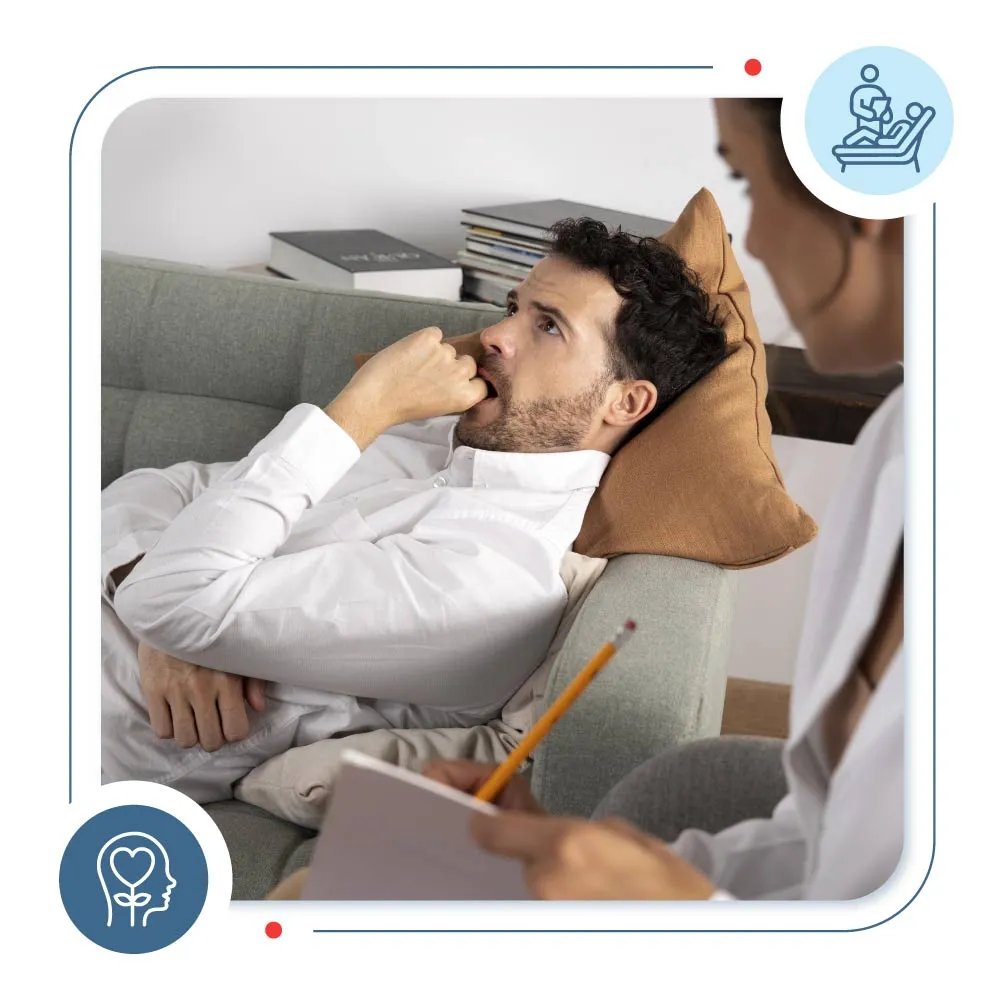

FAQs
01
How do I know if I have a sleep disorder or just occasional poor sleep?
Occasional sleeplessness is normal, especially during stressful times. But if poor sleep occurs three or more nights a week for more than a month, or if it interferes with your daytime functioning, it may be a sleep disorder.
02
Do older adults experience more sleep issues?
Elderly people are more affected by sleep disorders than others. More than half of elderly people complain about sleep issues compared to 15% to 22% of the general population.
03
How are sleep disorders diagnosed?
Polysomnography is a test to diagnose sleep disorders. Also known as a sleep study, it records your blood oxygen level, breathing patterns, brain waves and heart rate during sleep.
04
Can sleep disorders be prevented?
Depending on the disorder, common sleep disorder treatments include Dietary supplements, lifestyle changes, medications, cognitive-behavioral therapy (CBT) and continuous positive airway pressure (CPAP).
05
What sleep disorder is the most common?
Among several sleep issues, insomnia is the most common sleep disorder.
Real Stories, Real Recovery





We provide a comprehensive care provision for the most common mental issues people struggle with, such as PTSD, ADHD, OCD, anxiety, depression, sleep disorder, schizophrenia, and numerous other mental health conditions.



